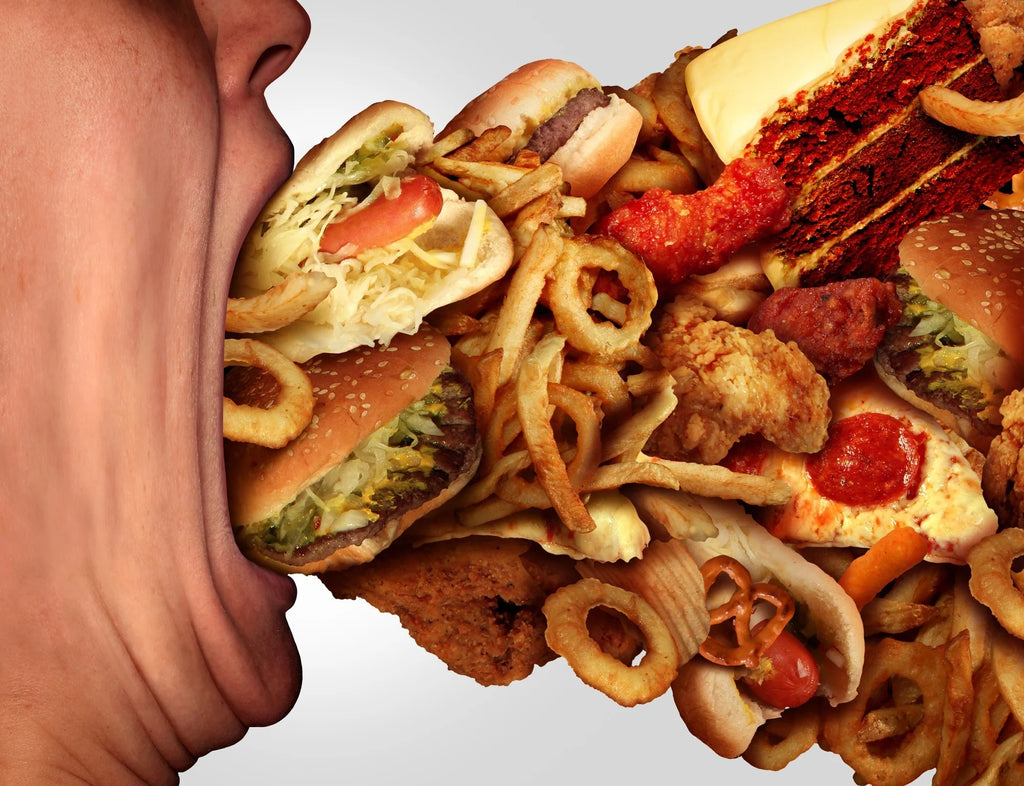
Why the Modern Diet Could Be Worse Than Smoking

In an era marked by convenience and instant gratification, our modern diet stands as a silent assailant to our health. While the consequences may not be as immediate or visible as smoking, the detrimental effects are real and profound. In this blog post, we delve into the alarming parallels between the modern diet and smoking, shedding light on why the convenience of contemporary food comes at a steep cost to our well-being. Fortunately, amidst this dietary crisis, solutions like the Airgarden system offer a beacon of hope, empowering individuals to reclaim control over their nutrition through homegrown produce.
The Reality of the Modern Diet:
Today's diet is rife with processed foods, laden with excessive sugars, unhealthy fats, and artificial additives. Convenience often trumps nutritional value, leading to a dependence on fast food and pre-packaged meals. While the immediate satisfaction may seem harmless, the long-term ramifications paint a grim picture.
Parallels with Smoking:
Just as smoking was once glamorised and widely accepted before the truth about its health implications came to light, the modern diet is similarly normalised despite its hazardous effects. While smoking directly impacts lung health, the modern diet wreaks havoc on multiple fronts, contributing to obesity, heart disease, diabetes, and a myriad of other chronic conditions. The insidious nature of both habits lies in their ability to inflict damage gradually, often evading immediate detection.
The Hidden Costs of Convenience:
The convenience of modern-day food comes with a staggering price tag — one that extends far beyond monetary value. Our reliance on processed foods has created a cycle of dependency, fueling cravings and addiction while depriving our bodies of essential nutrients. Moreover, the environmental toll of industrialized agriculture and food production exacerbates the crisis, contributing to pollution, deforestation, and climate change.
Empowering Change with Homegrown Solutions:
Amidst this bleak landscape, solutions like the Airgarden system offer a ray of hope. By empowering individuals to grow their own food using innovative technology, Airgarden enables a shift towards healthier, more sustainable dietary practices. With minimal space and effort, individuals can cultivate fresh produce right at home, bypassing the pitfalls of the modern food industry.
Here are ten illnesses commonly associated with the modern-day diet:
-
Obesity: Excessive consumption of processed foods high in sugar, unhealthy fats, and calories contributes to obesity, a major risk factor for various health conditions.
-
Type 2 Diabetes: Poor dietary choices, including high intake of sugary beverages and refined carbohydrates, can lead to insulin resistance and type 2 diabetes.
-
Heart Disease: Diets rich in saturated fats, trans fats, and sodium increase the risk of heart disease, including coronary artery disease, heart attacks, and strokes.
-
High Blood Pressure (Hypertension): Excessive sodium intake, often found in processed and fast foods, can raise blood pressure levels, increasing the risk of hypertension and cardiovascular complications.
-
Cancer: Certain dietary factors, such as consuming processed meats, excessive red meat, and low intake of fruits and vegetables, have been linked to an increased risk of cancer, including colorectal, breast, and prostate cancer.
-
Non-Alcoholic Fatty Liver Disease (NAFLD): Consumption of high-calorie, sugary foods and beverages can lead to the accumulation of fat in the liver, contributing to NAFLD, a condition closely associated with obesity and metabolic syndrome.
-
Digestive Disorders: Diets lacking in fiber and rich in processed foods can disrupt digestive health, leading to conditions such as irritable bowel syndrome (IBS), constipation, and gastroesophageal reflux disease (GERD).
-
Depression and Anxiety: Emerging research suggests a link between poor diet quality and mental health disorders, including depression and anxiety. Diets high in processed foods and low in nutrients may negatively impact brain function and mood regulation.
-
Osteoporosis: Inadequate intake of calcium, vitamin D, and other essential nutrients can weaken bones and increase the risk of osteoporosis, a condition characterized by brittle and fragile bones.
-
Dental Problems: High consumption of sugary foods and acidic beverages contributes to dental cavities, gum disease, and tooth decay, compromising oral health.
These illnesses highlight the significant impact of modern dietary habits on overall health and well-being, underscoring the importance of making informed food choices and adopting a balanced, nutritious diet.
The hidden dangers of the modern diet loom large, presenting a formidable challenge to public health and well-being. However, by recognising the parallels between our dietary habits and smoking, we can begin to address this crisis with the urgency it deserves. Through initiatives like the Airgarden system, we have the power to reclaim control over our nutrition, one homegrown meal at a time. Let us not underestimate the real cost of convenience — our health is too precious to be compromised for the sake of expediency.







